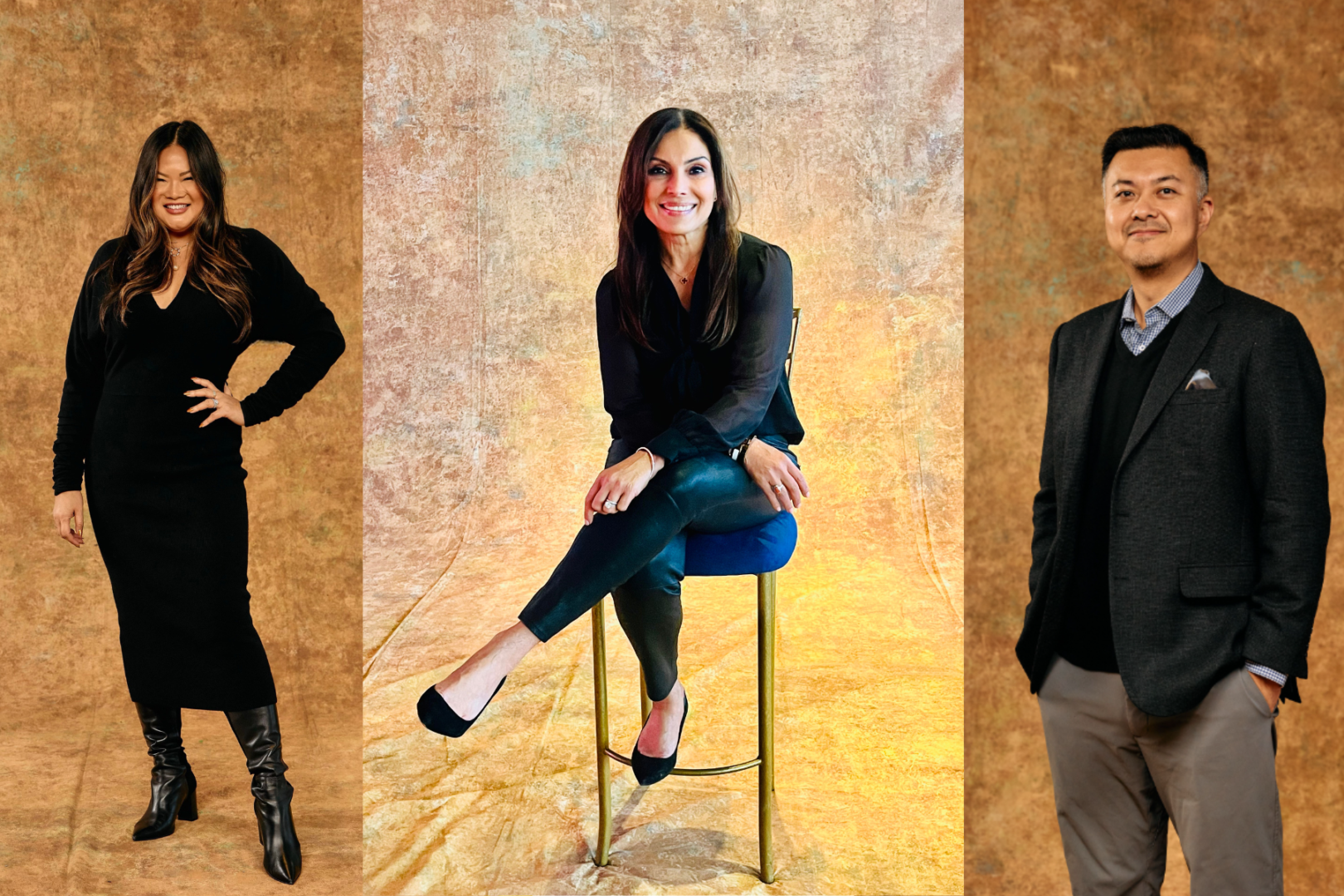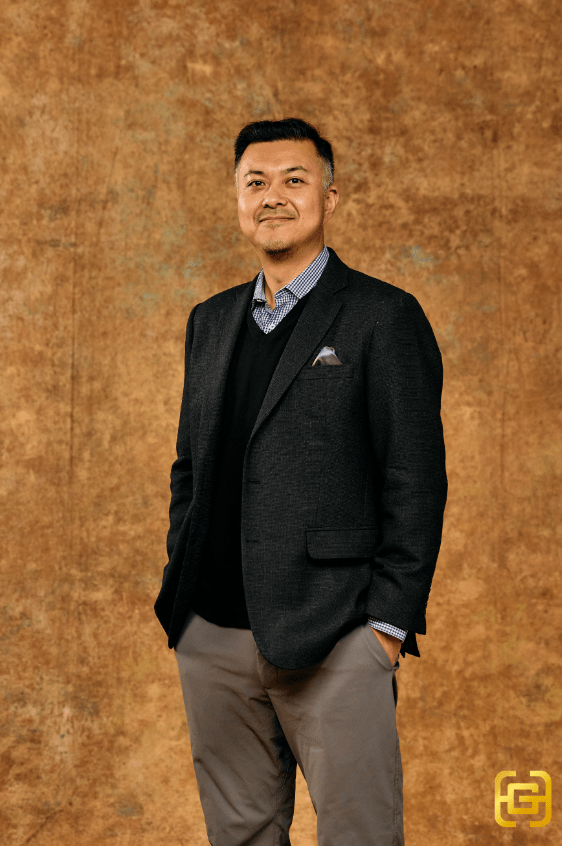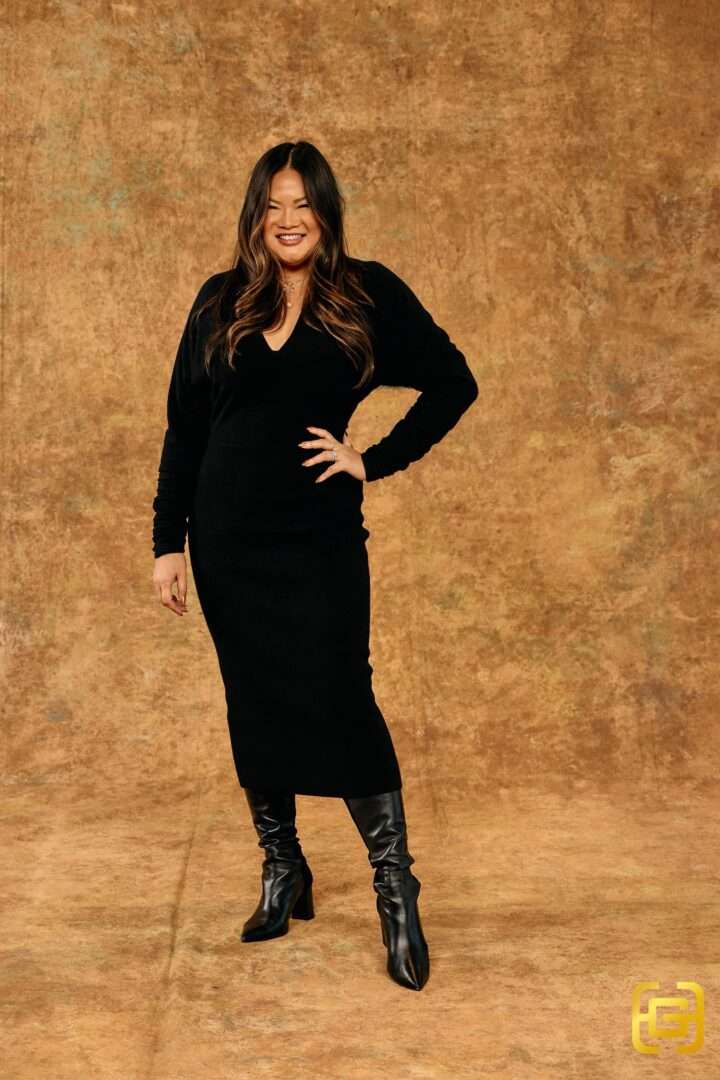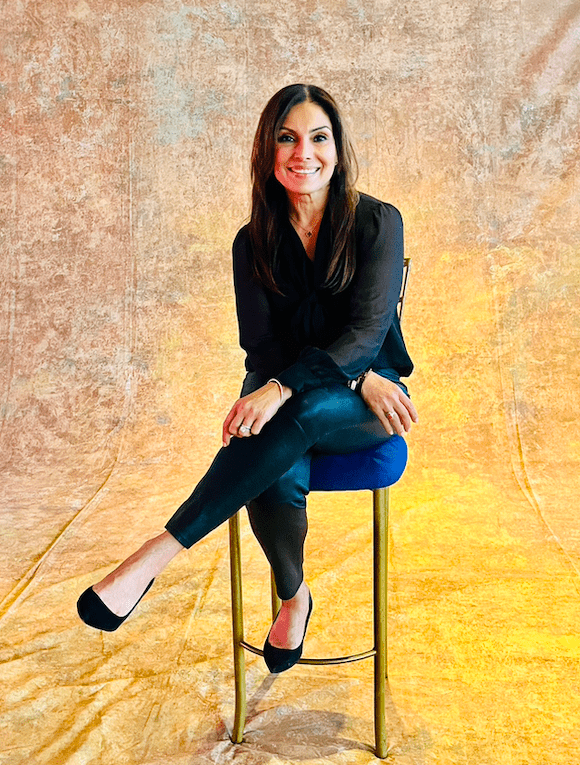Gold House’s Inaugural Gathering at ‘Gold Forum’ Amplified AAPI Voices, One Powerful Story at a Time

As the world’s largest population group, Asians and Pacific Islanders have long faced the challenge of a fragmented narrative. Often reduced to stereotypes and misrepresentations, their diverse experiences and contributions have been sidelined in mainstream media and cultural discourse. But in October 2023, Gold House, a non-profit collective dedicated to empowering the AAPI community, took a bold step towards changing that.
They convened the Gold Forum, a historic gathering that wasn’t your average industry conference. It wasn’t dry panels and pre-scripted presentations. Instead, it buzzed with the energy of authentic connection and shared purpose. Attendees, from journalists and writers to entrepreneurs and artists, found themselves inspired by leaders who spoke openly about how their Asian heritage shaped their journeys. Breakout sessions became electrified crucibles where these diverse voices collided, tackling critical issues head-on, from dismantling harmful stereotypes to navigating the complexities of achieving leadership in a system that often sidelines minorities.
View this post on Instagram
But perhaps the most powerful aspect of the forum wasn’t the words spoken, but the space it created. Here, in one room, were successful AAPI individuals from vastly different fields. It shattered the myth of the “Asian monolith,” showcasing the vibrant tapestry of talent and ambition within the community. Imagine the impact on future generations, who will now see themselves reflected not just in doctors and engineers, but in journalists, artists, and tech titans, their dreams validated and their paths illuminated.
Brown Girl Magazine’s Trisha Sakhuja-Walia was present as a part of Gold House’s first-ever Gold Publishers Program, focused on accelerating the growth of Asian Pacific-owned publications through access to exclusive events for incremental content opportunities, community education and training, as well as ad tech infrastructure support and ad revenue via Kargo’s Multicultural Content Amplifier.
View this post on Instagram
As a part of the morning’s programming, Trisha was fortunate enough to sit down with a few of the inspiring individuals who graced the Gold Forum event. The three folks she spoke to represented a spectrum of fields and perspectives, offered invaluable insights into the forum’s impact, the challenges and triumphs of navigating the AAPI landscape, and the collective vision for a future where their stories are no longer footnotes, but vibrant chapters in the American narrative.
[Read Related: Decoding Affinity Groups and Their Importance in Building Communities]
So, without further ado, let’s step into the shoes of these Gold Forum game-changers. Hear their stories, feel the energy, and let their dreams for the AAPI community ignite your own.
Brian Pang: From Astronomy to AAA Games, Championing AAPI Voices in Gaming

Brian Pang’s journey is anything but ordinary. From studying astronomy to leading strategy for inclusive design at Electronic Arts (EA), his passion for gaming and amplifying diverse voices shines through. We sat down with Brian to delve into his career path, the evolving landscape of representation in gaming, and his exciting new venture: Asians in Gaming.
You’ve shipped a staggering 45 games across various genres! What drew you to the gaming industry?
It was actually an unexpected detour! I studied astronomy in college, but during my final year, I took a leap of faith and landed an entry-level job at a video game company in Vancouver. I had no idea it would become my long-term career, but the love for games I grew up playing instantly clicked.
How has the industry’s approach to diversity evolved, particularly for AAPI representation?
Traditionally, gaming hasn’t been very diverse, mirroring the tech industry as a whole. But in the past decade or so, we’ve seen a significant shift. The global rise of players, particularly in Asia, and the power of games as a platform for social impact have driven this change. We’re now seeing more diverse characters, narratives, and talent both in front of and behind the screen.
Q: You mentioned facing challenges in prioritizing diversity initiatives. How are companies overcoming this?
It’s true. Budgets and deadlines can be tight, and diversity efforts sometimes get pushed aside. But the industry is recognizing that representation matters. At EA, we’re heavily invested in inclusive design, ensuring our games are accessible and cater to a global audience.
Now, let’s talk about Asians in Gaming! What sparked the idea for this non-profit?
Three things: the explosive growth of gamers in Asia, the underrepresentation of AAPI voices in gaming, and the need to uplift our talented community across development, marketing, and even the player space. Asians in Gaming is about shining a spotlight on these incredible individuals and fostering a supportive network.
What are your hopes for Asians in Gaming and the future of AAPI representation in gaming?
I dream of a future where AAPI stories are woven into the very fabric of gaming, where diverse voices are not just heard but celebrated. Asians in Gaming is a stepping stone towards that future, creating a platform for collaboration, mentorship, and inspiration. We want to ensure that every AAPI game developer, marketer, and player feels empowered to share their unique voice and contribute to the magic of gaming.
Michelle Wong: From Baking Sweet Treats to Building a Sweeter World

Michelle Wong, Sprinkles Cupcakes’ CMO, is a force to be reckoned with. Her career journey is a delicious blend of creativity, business acumen, and a passion for celebrating diversity.
Tell us about your background. What led you to Sprinkles?
I come from a family of artists, actors, singers, and dancers. I was an actor during my childhood up until my early twenties. I went to culinary school and studied at Le Cordon Bleu in London, and graduated with a grand diploma in French cuisine and Patisserie. It was very hard, but I loved it and it instilled so many core principles and discipline in me that I’ve carried throughout my career. When I moved back to the U.S., I fell into advertising and I absolutely loved it. It was creative and I got to flex all these different muscles that I had. My last role, I was part of the managing partner team of our agency, and I was our agency’s first female president and managing partner in its 50-year history. So it’s one of Los Angeles’s longest running agencies. And to hold that position was incredibly meaningful to me. When I had moved on, I worked as a consultant for a year and I landed at Sprinkles.
How is the food and beverage industry becoming more inclusive?
I think it’s incredibly cool to see Asian American and South Asian ingredients and flavors becoming mainstream. It takes away from the feeling of not being seen and allows kids to feel more accepted. I also see it as a way to celebrate my own heritage and the heritage of others.
How does Sprinkles approach representation, both internally and externally?
I was fortunate to join Sprinkles, a company that already had strong DEI and representation initiatives in place. My role was to amplify these efforts and take them to the next level. We did this for two reasons:
- To connect with our diverse customer base. We partnered with female black-owned businesses to create cupcake flavors, developed a Lunar New Year cupcake, and collaborated with When Coffee Supply for a Vietnamese Coffee cupcake. We take authenticity very seriously, using real coffee from Vietnam.
- To reflect our company’s values. Our bakeries are run by women, general managers are women, and 80% of our employees are people of color. We believe that diversity should start from within, and that our customers will see themselves reflected in our work.
We are committed to representing our diverse customer base in everything we do, from hiring to product development. It’s our responsibility to make sure that everyone feels seen and included.
Can you tell us about some of your favorite collaborations at Sprinkles?
My hands-down favorite collaboration was the ‘Female Chef Series,’ and especially the one with Claudette Zepeda. We took her beloved childhood candy, “Glores,” and turned it into a cupcake that totally blew up. It wasn’t just about the taste—it really connected with our customers on a personal level.
Speaking of awesome collaborations, we’re super excited to be working with Padma Lakshmi on a special Diwali cupcake. As a personal hero of mine, Padma totally embodies our brand. She’s a food expert like no other, but she’s also a total ray of sunshine and a true humanitarian. We’re drawing inspiration from Mango Lassi, a popular Indian yogurt drink, to create a Luscious Mango cupcake that’s gonna knock your socks off. It’s got a moist mango cake, a creamy mango curd center, and a topping of cinnamon and cardamom-spiced yogurt frosting.
What are your thoughts on labeling AAPI businesses, creators and individuals as niche?
Yeah, it’s fascinating that, at the end of the day, it’s truly about celebrating who you are as an individual. You often hear that your identity, your roots, are your superpower. And I’ve experienced that firsthand, to the point where my identity is a significant part of who I am, how I conduct business, and the relationships I build. I’m not a niche; I’m me. I embrace that, and I believe it’s something we all possess. The key is to ensure that we tap into that individuality as individuals.
Shelly Kapoor Collins: Bridging Tech Frontiers, Empowering Women in Venture Capital

Shelly Kapoor Collin’s extraordinary career, from Oracle programmer to venture capitalist, mirrors her commitment to breaking barriers for women in tech. Dive into Shelly’s journey, her advocacy for diversity in venture capital, and her impactful initiatives, including the Shatter Foundation, as she continues to shape the future of technology and empower the next generation.
Can you share a little bit about your personal background and experiences that have shaped your perspective and approach to work?
I was born in India and raised in the United States. My background instilled a strong emphasis on education and science. My parents, the first in our family to come to this country, instilled a drive to succeed and create a better life for future generations. My career has been a transition from programmer to political tech to venture capitalist, but always driven by technology. I realized I didn’t want to just be a “plus one” in the world, but rather someone actively shaping it. This led me to use my skills and experience to empower women and minorities through various initiatives.
How did you get involved in venture capital, specifically focusing on women-led and founded technology companies?
My journey to venture capital was a combination of serendipity and intentional steps. After realizing my consulting business wasn’t fulfilling, I volunteered for Kamala Harris’s campaign. Witnessing the power of women in leadership positions sparked a passion for supporting them. I started angel investing and mentoring, and eventually was asked to join the Obama campaign. This led to my appointment in the Obama administration, where I saw firsthand the challenges women face in starting businesses. I felt compelled to address these challenges by launching the Shatter Fund, which specifically invests in women-led tech companies. There’s a direct correlation between diversity and innovation, leading to greater returns for investors and communities. Women make the majority of purchasing decisions, yet they’re often not the ones creating the products. This leads to a disconnect between consumer needs and product development. Shatter Fund and Sway Ventures, where I’m currently a partner, aim to address this imbalance by investing in companies that reflect the diversity of the market. We believe this leads to better products, greater financial returns, and a more positive impact on the world.
In addition to your work with Shatter Fund, you also co-founded the Shatter Foundation. Can you tell us more about its mission and impact?
Absolutely! The Shatter Foundation is the non-profit arm of the Shatter Fund, and it plays a crucial role in promoting inclusivity and equitable entrepreneurship from a young age. Our mission is to empower young girls in underserved communities by providing them with the tools, resources, and mentorship they need to become successful entrepreneurs. We believe that fostering entrepreneurial mindsets early on can break down barriers and create a more inclusive future for women in business.
As a woman and a South Asian woman in the tech industry, have you faced any challenges?
As a South Asian woman in tech and subsequently VC, I’ve definitely faced my share of challenges. One of the biggest hurdles was the prevalence of “bro culture,” especially early in my career. This environment can be exclusionary and discouraging for women, making it difficult to navigate and feel supported. However, I’ve also encountered amazing male allies who believed in me and helped me open doors. The venture capital industry itself is historically homogenous and insular. This homophily, where people tend to associate and work with those who are similar to them, can make it even harder for someone like me, who doesn’t fit the traditional mold, to break in. However, by leveraging my network and building strong relationships, I was able to gain the backing of influential individuals who helped me gain the credibility and access needed to thrive in this competitive space.
Overcoming these challenges required resilience, risk-taking, and a willingness to embrace new opportunities. I learned to be strategic and intentional in my actions, turning every interaction into a chance to build relationships. While the journey wasn’t always easy, it ultimately made me stronger and more determined to succeed.
What advice would you offer to women navigating the tech industry?
Get exposure: Don’t limit yourself to traditional paths. Seek out diverse experiences and mentors to broaden your horizons.
Be authentic: Be true to yourself and your values. Build relationships based on genuine connections and mutual benefit.
Network strategically: Go to events, connect with people, and build relationships that can provide support and opportunities.
Take calculated risks: Don’t be afraid to step outside your comfort zone and pursue opportunities that excite you.
Find mentors: Seek guidance from experienced individuals who can support you and offer valuable insights.
How do you balance your demanding career with your personal life?
Work-life balance is a continuous journey. I’ve learned that it’s not about achieving perfect balance at all times, but rather making conscious choices and prioritizing what’s most important at each stage of life. There are times when I prioritize work and other times when I focus more on my family. The key is being flexible, adaptable, and communicating openly with loved ones.
What drives your involvement with initiatives like Gold House and South Asian House?
I’m passionate about initiatives like Gold House and South Asian House because they create spaces for our community to come together and celebrate our shared heritage. They provide opportunities for networking, mentorship, and collaboration, which are crucial for our collective growth and success. These organizations also work to raise awareness of our community’s contributions to society and advocate for our rights and interests. They empower us to become more involved in public service, philanthropy, and leadership roles, shaping a more inclusive and equitable future.
What are your hopes for the future of the South Asian community in the United States?
I dream of a future where the South Asian community is fully integrated into American society, while still cherishing our unique cultural traditions. I hope to see our community continue to rise in leadership roles across various sectors, including politics, business, and technology. I also hope to see more South Asian entrepreneurs and investors, creating opportunities and wealth within our community. Additionally, I believe it’s crucial for us to invest in our youth, providing them with educational resources and mentorship to ensure their success and contribute to a brighter future.
[Read Related: South Asian Americans, This is our Time to #StopAAPIHate]
The Gold Forum wasn’t a closed book, it was a bookmark. A vibrant reminder of the power of AAPI voices, woven with threads of possibility. Now, it’s up to us to keep turning the page. Let’s celebrate the stories shared, amplify the dreams ignited, and rewrite the narrative, one chapter at a time. The future is wide open, waiting for our threads to be spun into its magnificent tapestry.
Here’s to more gatherings like Gold Forum, where sparks become flames, and voices become anthems. The AAPI story is just beginning. We can’t wait to hear the next verse! What about you?




